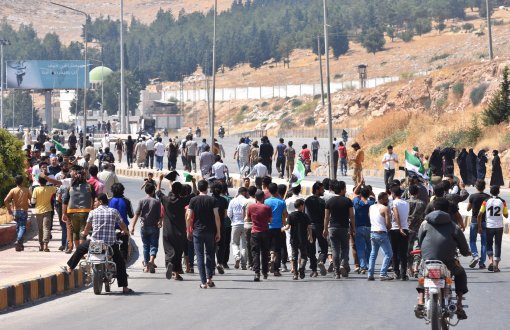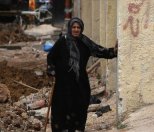Click to read the article in Turkish
In addition to the worsening of the situation in Syria and Afghanistan, migrations have increased as a result of negative rhetoric both at the political level and in society in Turkey, Pırıl Erçoban from the Association for Solidarity With Refugees (Mülteci-Der) said.
News of deportations has also proliferated following increased immigration movements.
After Fahrettin Altun, the Chairperson of Presidential Communications said, "The claim that Turkey deported Syrians is nonsense," on July 24, reports on the deportation of refugees have almost stopped. But the practice of deportation is not over.
CLICK - Syrians in Turkey According to Migration Management Figures
In addition, controls in the Aegean Sea, where refugees cross to Greece, have allegedly been reduced. The latest report on the Aegean Sea is dated August 30: "Thirty refugee boats from Turkey docked on the Greek island of Lesbos in about 30 minutes. There were 547 refugees in boats docked to the northeast of the island." Serdar M. "The number of refugees reaching Lesbos, Greece, in August has increased greatly," said academic Serdar M. Değirmenclioğlu in his column at the daily Evrensel. One day before the end of the month, it was recorded that the number of refugees reaching the island approached 4 thousand. The situation of refugees on the island is getting worse," he said.
In addition to the increase that happens every year following the warming of the weather, the Aegean Sea became crowded with the increasing wars in the Middle East and Asia, and with the use of refugee policies in everyday politics and in a climate of economic crisis.
Minister of Interior Süleyman Soylu also issued a statement on July 10, saying, "In 2019 we caught 163 thousand illegal immigrants. There are 56 thousand illegal immigrants in 2018 whom we have sent to their home countries and deported. So far this year, 43 thousand illegal immigrants have been sent. We have 7 thousand illegal immigrants who got tickets, " he said. "We are facing the biggest migration wave in history, " Minister Soylu said on July 21. When we opened the doors from here, no government can last six months, " he signaled what they would do.
The report published today (September 3) in the pro-government daily Yeni Safak shows the impact of the latest developments in the conflict in Syria's Idlib, a province neighboring Turkey: "If the tension escalates, the number of people piling up on Turkey's border will be 2 million. 'At least one million people would go to Europe in a migration wave,' said Ghassan Hamo, head of Idlib's Local Council."
Andrew Gardner from Amnesty International also told bianet it was anticipated that a new wave of migration could come as a result of the Idlib war.
Erçoban and Gardner stated that the practice of deportation, especially for unregistered refugees in İstanbul, is a new development.
"We can say that there has been a serious change in operations on refugees in Istanbul, at least for those who are not registered," Erçoban said.
Gardner said deportation has always been there, but there is also a policy change in İstanbul.
Erçoban: Removal of refugees will increase if the safe zone is established
Pırıl Erçoban explained the reasons for increased mobility in migrations:
"Last year, President Erdoğan had rhetoric like, 'We will make sure that our Syrian brothers return to their country.' There had been a change of discourse, regardless of whether the conditions there were appropriate or not. I believe the signals of change were also given from that time. Then, harsh practices began in İstanbul.
"If an agreement is reached and a safe zone is established on the border, I think the policy towards sending Syrians will emerge more clearly."
Reminding that the situation in Afghanistan had deteriorated, Erçoban said, "Last year there was also an increase in the number of refugees from Afghanistan. A thousand of them have been deported, but there is an increase in entrances. On the other hand, crossings from Turkey's sea and land border to Europe have increased. And judging by the numbers, many have been rounded up."
"Negative rhetoric is effective in increasing migration"
"There is an abnormal increase in the number of both those rounded up and those who can cross the borders," he said.
"Judging by the Coast Guard's figures, just the August 2019 figures are higher than the entire last year. There is also a significant increase in entries to Turkey."
Erçoban also stated the impact of politics in increasing departures from Turkey:
"There have been those who have been registered in Turkey and have lived here for some time but have not thought about leaving so far are planning to cross into Europe because of their living conditions, operations, and the safe zone rhetoric. Negative rhetoric has increased on social media, and the situation in Idlib and the region have mobilized people.
The situation in Afghanistan and Syria is deteriorating, she said, adding that negative rhetoric in Turkey, both at the level of politicians and society, has also been instrumental in increasing migrations.
Gardner: No refugees should be sent back
Andrew Gardner said the repatriation policy is not new but there had been a change in İstanbul: "In 2016 we had issued a report on forced repatriations. Refugees who are not registered are being forcibly repatriated."
The situation in Syria is extremely bad with regards to clean water, food and housing, Gardner said, adding that the situation in the region is already always dangerous and that developments in Idlib could lead to a new wave of migration.
"Even if there was no new activity like the operation in Idlib, the situation in Syria, especially in the north of the country, is very bad from a humanitarian point of view. No refugees should be sent back," he said. (AS/VK)













aaa.jpg)




